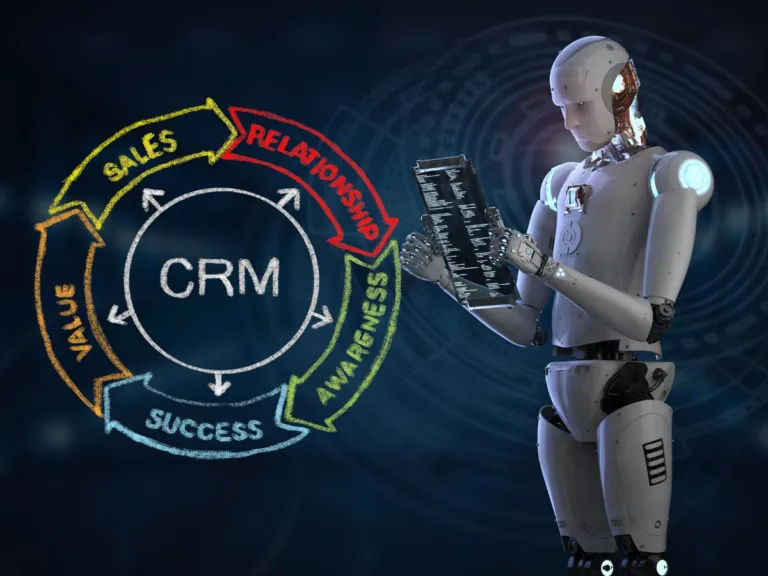AI in E-commerce: Tools for Your Online Shopping Business
Artificial Intelligence has revolutionized the way we shop online, making the process more efficient and personalized than ever before. In this blog post, we will explore the various AI tools available to online businesses that can help enhance customer experience, increase sales, and streamline operations.
Key Takeaways:
- Personalized Recommendations: Implement AI tools to provide personalized product recommendations based on customer preferences and behavior.
- Chatbots for Customer Service: Utilize AI-powered chatbots to enhance customer service by providing instant support and answering queries in real-time.
- Dynamic Pricing Strategies: Use AI algorithms to adjust pricing dynamically based on factors like demand, competition, and customer behavior to maximize sales and revenue.
- Visual Search: Integrate AI-powered visual search technology to allow customers to search for products using images, enhancing the shopping experience.
- Inventory Management: Leverage AI tools for efficient inventory management, including demand forecasting, replenishment optimization, and identifying slow-moving products.
Understanding AI and Its Relevance to E-commerce
What is Artificial Intelligence?
Even if you’re not a tech whiz, you’ve likely heard the term “artificial intelligence” before.
But what exactly is AI?
In simple terms, artificial intelligence refers to the simulation of human intelligence processes by machines, especially computer systems. This involves tasks such as learning, reasoning, problem-solving, perception, and language understanding.
Understanding how AI works can help you leverage its power for your e-commerce business. By utilizing AI tools, you can automate processes, analyze data more efficiently, enhance user experience, and ultimately drive more sales.
The Importance of AI in the Digital Marketplace
Another key aspect to consider is the importance of AI in the digital marketplace. With the vast amount of data generated online, it’s nearly impossible for humans to analyze and make sense of it all in real time. This is where AI comes in handy, as it can process and interpret huge volumes of data quickly and accurately, providing valuable insights for your e-commerce business.
AI Powered Tools for Enhancing Customer Experience
Chatbots for Improved Customer Service
Any e-commerce business looking to enhance customer service can benefit from the use of chatbots. These AI-powered tools can interact with customers in real-time, providing assistance with inquiries, order tracking, and product recommendations. Chatbots are available 24/7, ensuring a prompt response to customer queries and helping to improve overall satisfaction.
Personalized Recommendations Systems
These days, you can program e-commerce interactions to provide personalized product recommendations based on customer preferences and past purchase history. By leveraging machine learning algorithms, e-commerce businesses can offer a tailored shopping experience to each customer, increasing the chances of making a sale and fostering customer loyalty.
Powered by advanced algorithms, personalized recommendation systems analyze customer behavior and purchasing patterns to suggest relevant products. These systems can significantly increase cross-selling and upselling opportunities, leading to higher conversion rates and a boost in revenue for online retailers.
Visual Search for Easier Product Discoveries
Service-oriented e-commerce platforms can integrate visual search capabilities to help customers easily discover products they desire. By allowing users to upload images or search using pictures, AI-powered visual search tools can match items based on shape, color, or style, providing a more intuitive and efficient shopping experience.
Easier access to products through visual search not only streamlines the shopping process but also enhances user engagement and satisfaction. By simplifying the product discovery phase, e-commerce businesses can increase customer retention and drive repeat purchases.
Streamlining Operations with Artificial Intelligence
Inventory Management through Predictive Analytics
Despite the myriad challenges faced by online retailers, AI offers a solution to streamline operations and enhance efficiency. Inventory management is a critical aspect of running an e-commerce business successfully. Predictive analytics powered by AI can help businesses forecast demand, optimize stocking levels, and reduce excess inventory costs.
Pricing Optimization Tools
Any online retailer knows the importance of competitive pricing to attract customers and drive sales. AI-powered pricing optimization tools can analyze market trends, competitor pricing, and customer behavior to suggest the best pricing strategies in real-time. By leveraging these tools, businesses can maximize profits while remaining competitive in the market.
Tools equipped with AI algorithms can automatically adjust prices based on various factors such as demand, seasonality, and competitor pricing. This dynamic pricing strategy can help online retailers stay agile and responsive to market changes, ultimately increasing sales and revenue.
Fraud Detection and Security Enforcement
Pricing strategies are crucial for online retailers, and AI can play a significant role in optimizing pricing decisions. By analyzing customer data, purchase history, and market trends, AI-powered tools can help businesses set optimal prices that maximize profit margins while maintaining competitiveness.
Plus, AI-driven fraud detection tools can help online retailers safeguard against fraudulent activities such as identity theft, fake reviews, and payment fraud. By continuously monitoring transactions and user behavior patterns, AI can identify and prevent potential security threats, ensuring a safe and secure shopping experience for customers.
Marketing and Sales Boosters
AI-driven Content Creation and SEO
To stay ahead of the competition and increase your online visibility, utilizing AI-driven tools for content creation and SEO is crucial. Any online shopping business can benefit from AI algorithms that analyze consumer behavior and market trends to generate personalized, engaging content. By incorporating relevant keywords and optimizing your website with AI-powered SEO tools, you can improve your search engine rankings and attract more organic traffic to your site.
Email Marketing Automation
The key to successful email marketing lies in personalization and timely communication. The use of AI in email marketing automation allows you to send targeted messages to your customers based on their preferences and behavior. The implementation of AI algorithms can help streamline your email marketing campaigns, improve open and click-through rates, and ultimately drive sales. The automation aspect saves you time and effort while ensuring that your messages reach the right audience at the right time.
This approach enables you to create personalized email campaigns tailored to individual customer preferences and behaviors. By leveraging AI to analyze data and predict customer preferences, you can send targeted emails that are more likely to resonate with your audience, leading to higher conversion rates and increased customer engagement.
Targeted Advertising with Machine Learning
Machine learning algorithms can analyze vast amounts of data to identify patterns and predict customer behaviors, allowing you to create highly targeted advertising campaigns. By leveraging machine learning tools, you can target the right audience with the right message at the right time, maximizing the effectiveness of your advertising efforts.
Email marketing is one of the key channels where targeted advertising with machine learning can make a significant impact. By analyzing customer data and behavior, machine learning algorithms can help you segment your email lists and deliver personalized content to each subscriber. This personalized approach can lead to higher engagement and conversion rates, ultimately driving more sales for your online shopping business.
Plus, the ability to track and analyze the performance of your targeted advertising campaigns in real-time allows you to make data-driven decisions and optimize your strategies for better results. By harnessing the power of machine learning in your advertising efforts, you can stay ahead of the competition and boost your sales in the competitive e-commerce landscape.
Data Analysis and Customer Insight Mining
Customer Behavior Analytics
Keep a close eye on your customers’ behavior by utilizing data analysis tools to gain valuable insights into their shopping patterns. By tracking metrics such as the frequency of purchases, browsing behavior, and cart abandonment rates, you can better understand your customers’ preferences and tailor your marketing strategies to meet their needs. Customer behavior analytics can help you identify trends and patterns that can guide you in optimizing your online shopping experience and increasing conversions.
Predictive Shopping Trends
Customer behavior data can be leveraged to predict future shopping trends and consumer preferences. By analyzing historical data and using predictive analytics tools, you can forecast what products are likely to be popular in the coming weeks or months. This enables you to stay ahead of the curve and stock up on inventory that aligns with anticipated demand, ultimately leading to improved customer satisfaction and increased sales.
Another benefit of predictive shopping trends is the ability to personalize the shopping experience for individual customers. By anticipating their needs and preferences, you can recommend products that are tailored to their tastes, increasing the likelihood of a purchase. This personalized approach can foster customer loyalty and drive repeat business, setting you apart from your competitors.
Overcoming Challenges with AI Implementation
Addressing Privacy Concerns and Data Security
Your customers’ privacy and data security are paramount when implementing AI in your e-commerce business. An vital step is to clearly communicate to your customers how their data is being used and ensure that it is handled securely. Implementing encryption technologies and complying with data protection regulations like GDPR can help build trust with your customers.
Ensuring a Human Touch in the Digital Landscape
Challenges may arise when trying to strike a balance between automation and maintaining a human touch in your online shopping experience. One way to address this is by using AI to personalize recommendations and interactions while still allowing for human interaction when needed. By incorporating chatbots with the option for live customer support, you can ensure that there is always a human touch available.
For instance, you can use AI to analyze customer behavior and preferences to offer tailored product recommendations, but still provide the option for customers to connect with a real person for assistance or personalized recommendations. By combining the efficiency of AI with the personal touch of human interaction, you can create a seamless and engaging shopping experience for your customers.
Future Directions and Emerging Trends
The Role of AI in Omnichannel Strategies
With the increasing complexity of customer journeys, the role of AI in omnichannel strategies is becoming more crucial than ever. AI can help e-commerce businesses seamlessly integrate their online and offline channels, providing customers with a consistent and personalized experience across all touchpoints. From predictive analytics to personalized recommendations, AI empowers businesses to understand customer preferences better and engage with them in a more meaningful way.
Innovations on the Horizon for E-commerce
On the horizon for e-commerce are exciting innovations that are set to revolutionize the way online shopping is done. One of the most anticipated trends is the rise of voice commerce, where customers can make purchases using voice commands through virtual assistants like Alexa and Google Assistant. This shift towards voice-activated shopping is expected to streamline the purchasing process and create a more convenient shopping experience for customers.
Future advancements in augmented reality (AR) and virtual reality (VR) technologies are also expected to play a significant role in shaping the future of e-commerce. From trying on clothes virtually to visualizing products in real-world settings, AR and VR offer immersive experiences that can enhance customer engagement and drive sales. As technology continues to evolve, e-commerce businesses that embrace these innovations will stay ahead of the curve and deliver exceptional shopping experiences to their customers.
Grow and Scale with ai e-commerce Tools
Conclusively, implementing AI tools in your e-commerce business can greatly enhance the customer experience, streamline operations, and boost sales. Whether you use chatbots for customer service, personalized product recommendations, or data analytics for targeted marketing, AI can help your online shopping business stay ahead of the competition and meet the evolving needs of consumers.
By utilizing AI technology, you can better understand your customers, anticipate trends, and make data-driven decisions to optimize your online store. Don’t miss out on the opportunity to leverage AI in e-commerce and take your business to the next level in this digital age.
FAQ
Q: What is AI in E-commerce?
A: AI in E-commerce refers to the use of artificial intelligence technology in online shopping businesses to improve customer experience, personalize recommendations, and optimize operations.
Q: How can AI help my online shopping business?
A: AI can help your online shopping business by providing personalized product recommendations, automating customer service through chatbots, optimizing pricing strategies, and analyzing data for insights.
Q: What are some tools powered by AI that I can use for my E-commerce business?
A: Some AI-powered tools for E-commerce businesses include chatbots for customer service, recommendation engines for personalized shopping experiences, dynamic pricing algorithms, and fraud detection systems.
Q: How can AI improve customer experience in E-commerce?
A: AI can improve customer experience in E-commerce by providing personalized product recommendations based on browsing history, simplifying the checkout process with chatbots, and offering proactive customer support.
Q: Is AI in E-commerce only for large businesses?
A: No, AI in E-commerce can benefit businesses of all sizes. There are AI tools and solutions available that are scalable and affordable for small and medium-sized online retailers as well.






